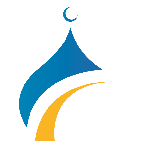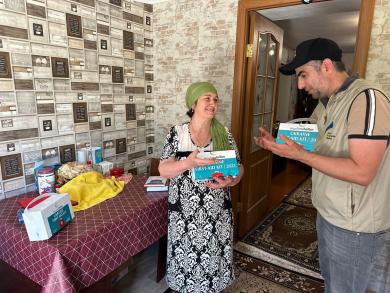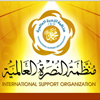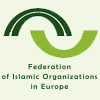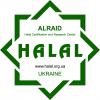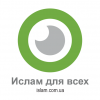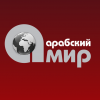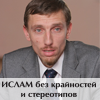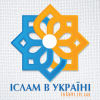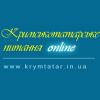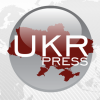You are here
Add new comment
The Council of Ukrainian Muslims activists provided humanitarian aid to over 300 families who were affected in the Kherson Region.
During the third trip organized by volunteers of the Council of Ukrainian Muslims, they managed to bring 1.5 tons of humanitarian aid to the south of Ukraine.
Seyran Aryfov, the President of the Council of Ukrainian Muslims, stated that the cargo was transported in three cars from different cities: Lviv, Kyiv, and Odesa:
“Together with my brothers, we loaded drinking water and products into the car, including locally produced halal sausage. The second and third cars left Odesa and Lviv. By the grace of the Almighty, on May 18, cars full of products - with rice, pasta, sausage, sugar, tea, and basic necessities - reached the people from the flooded areas.”
Also, Islamic cultural centers provided clothes, shoes, 60 first-aid kits containing 24 types of medicines, and tourniquets to the affected residents of the village of Zelenivka in the Kherson Region.
“Council volunteers provided medicine and other necessary items to the village medical center. Part of the cargo was taken to local volunteers who regularly assist the residents in this and nearby villages. Some people received aid directly,” says Sheikh Seyran.
According to the head of the Council of Ukrainian Muslims, a great contribution to the organization of these actions was made by the head of the Odesa Islamic Cultural Center Hamza Isa:
“As soon as it became known about the disaster at the Kakhovka Hydroelectric Power Plant, Hamza's brother immediately joined the collection of humanitarian aid in Odesa together with other volunteer organizations. He visited the Kherson Oblast after the flood, and now he came with us for the second time.”
During the day, while one part of the organization's volunteers provided humanitarian aid, others prepared about 150 portions of Arabic pilaf.
“We brought with us all the necessary equipment for the task at hand. We thought that it would be suitable to prepare hot lunches for the locals. Everything had already been prepared and distributed there,” says the action coordinator Amin Al-Qasim.
According to him, the Council plans to continue providing humanitarian aid to the residents of the affected Kherson Region.
The volunteers communicated with the population and even got to know a family of Crimean Tatars who had previously survived deportation. The organizers of the action also visited the monument to the victims of the Crimean Tatar genocide, which was destroyed by the Russian occupiers.
